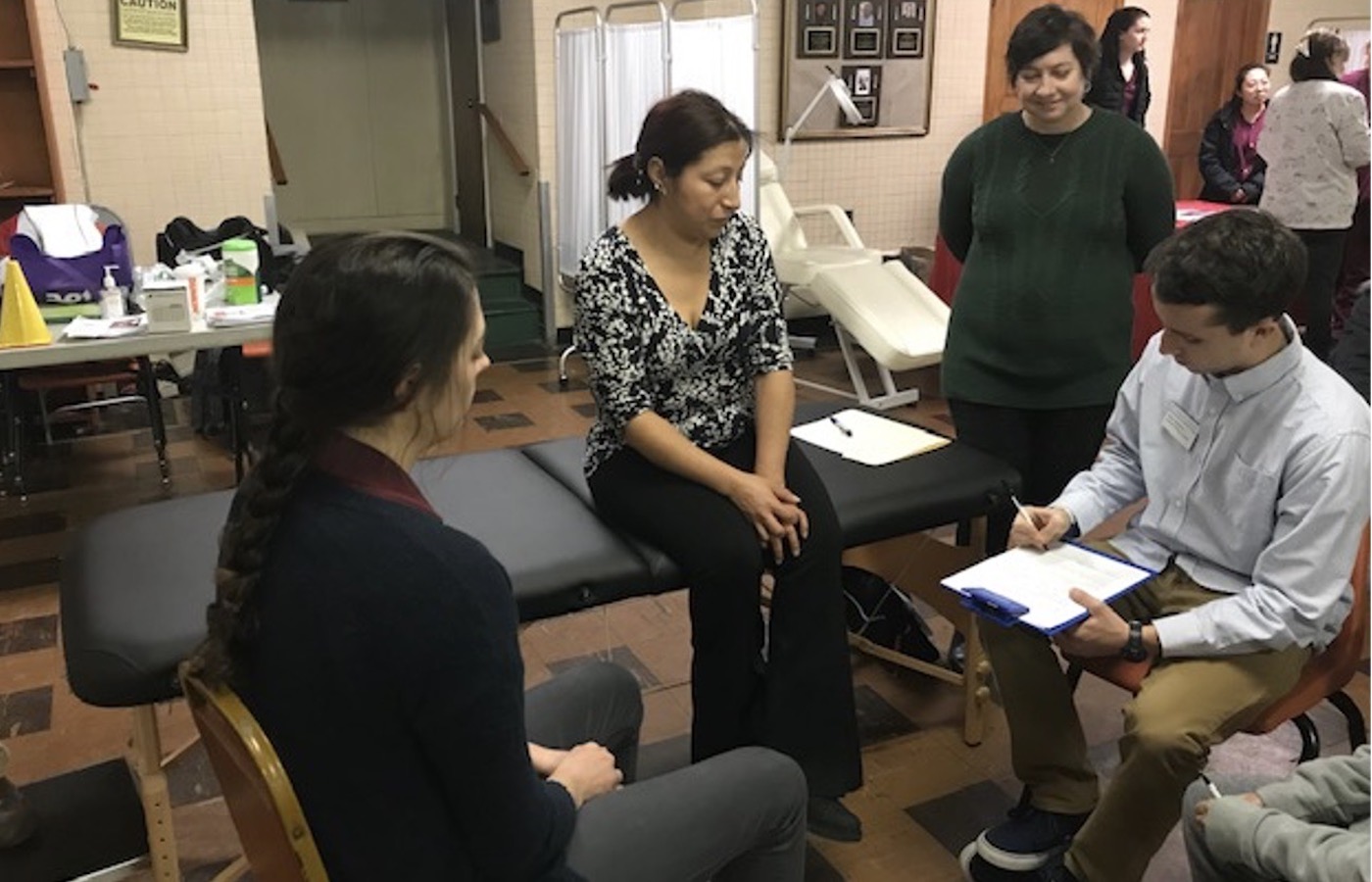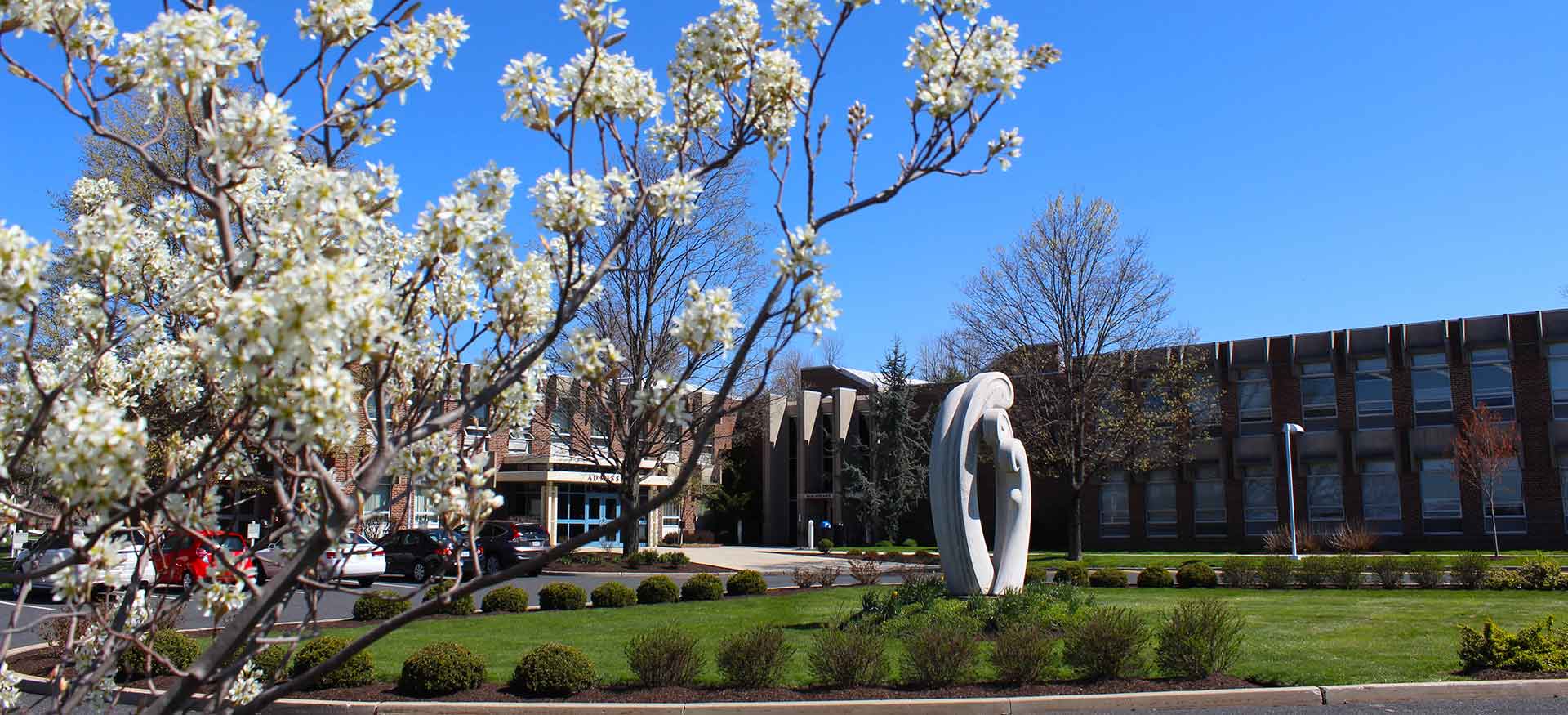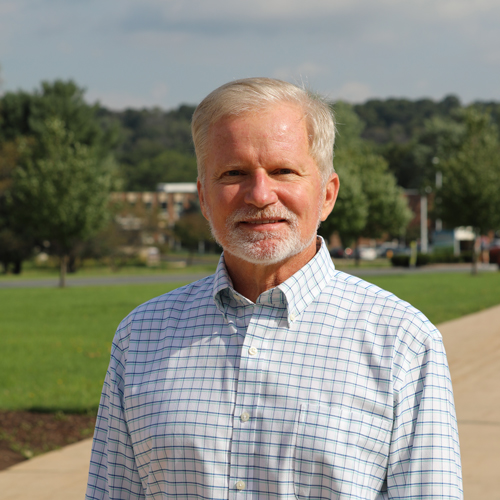Everyone Comes Out Changed: DPT Students Provide Care, Compassion to Undocumented Patients

Kaitlyn Hines can still recall a man she helped during her days volunteering at the pro bono clinic in Norristown, Montgomery County—one of Pennsylvania’s sanctuary counties.
The man told Hines he was experiencing back pain. When she asked if he could pinpoint when the pain started, he told her he had sat in a truck for several days while trying to enter the country.
“He and a large number of people were crammed into a space that was not designed for transporting people,” says Hines D’18. “As a result, he had some lasting back pain, I believe, from being in that position for such a prolonged period. And that’s what people are doing to come to our country. You don’t see that in the everyday medical records that you review in an orthopedic clinic.”
An estimated 10.5 to 12 million people in the United States are undocumented immigrants. Their status means they don’t have access to health care coverage, whether through private means or the federal marketplace.
Stephen Carp, Ph.D., and members of the doctor of physical therapy program have seen these immigrants’ hardships up close. For five years and counting, DPT students have volunteered at the Norristown clinic that serves this community.
DeSales’ ongoing involvement allows students to practice their skills in a challenging setting while supporting the program’s goal of service.
“Everyone comes out changed afterwards, just to see the depth of poverty.”
This endeavor first came to be after Rev. Gus Puleo, a Norristown native, became pastor of St. Patrick’s Church. He recognized the community had a large undocumented population that needed better medical care. Local hospitals would not negotiate with Puleo when he reached out in search of pro bono services.
The pastor began contacting universities around eastern Pennsylvania with a new idea: to offer a free clinic, staffed by skilled students and faculty supervisors, once or twice each month in the basement of the church. There was wide-ranging response. Today, the clinic offers dental care from Temple University, optometry from Salus University, prenatal nursing from Villanova University, occupational therapy from Widener University, and more.
DeSales’ physical therapy program was still in its infancy when Carp, an associate professor and faculty mentor, heard from Puleo. But there was no shortage of students who were eager to help.
As part of the program’s mission to convey Christian humanism and Salesian values of service, faith, and reason, DPT students must complete 24 hours of community service in the field to graduate. Mary O’Malley ’20, D’22 and Marlee Dillon ’21, D’23, both part of the 3+3 path, are DPT Student Association service chairs and work to coordinate volunteer opportunities for their respective classes.
“Of all our service opportunities, it’s one that students look forward to the most,” says O’Malley, who graduated last August. “You’re getting that one-on-one interaction with a patient in a unique setting, with a unique population, and you’re able to use your knowledge and clinical skills to serve.”
That population faces a number of challenges, beginning with trust. Carp and the student volunteers have observed a stark difference in turnout from month to month. But with an estimated 4,000 undocumented parishioners at St. Patrick’s, the church is an ideal home for the program.
“They don’t have to go to a hospital or a clinic that they’re not familiar with,” Dillon says. “They know the location. They trust the people who work in the church.”
Puleo spreads word through the community about which Sundays the clinic will operate. After Mass, nursing students perform triage and point patients to the right station. Carp and at least two DeSales DPT students attend each day, and they’ll see anywhere from one patient to double digits in the course of an afternoon. Records are kept to a minimum, never computerized; students only take patients’ first names, last initials, and ages.
Puleo—whom Carp declares will someday win the Nobel Peace Prize—is sometimes there with his parishioners. He was a Spanish literature professor at Columbia University before joining the seminary, and both his grasp on the language and his overall demeanor help the immigrants feel at ease.
“He’s a very happy and intelligent man,” Hines says. “He could speak beautiful Spanish and English and speak very eloquently in both languages, and everybody just seemed to adore him.”
Hines, a Bethlehem native, was part of the DPT program’s second graduating class and now works locally as a pelvic floor therapist at St. Luke’s University Hospital. She says serving in Norristown prepared her for her career in ways that standard classroom learning could not.
“Being a student, you learn the textbook way of treating and doing things,” Hines says. “Doing community health and doing pro bono services, you treat in a very different way, which is not necessarily the textbook way, because you may see these patients one time. They’re not necessarily coming back to you. So you try to evaluate, educate, and give them maybe the three most important exercises that will help them with their problem in the time that you can see them.”
Those challenges can be valuable educational tools for expanding students’ horizons.
“A student might have just completed an internship at, say, the Hospital of the University of Pennsylvania, where everything is available to everybody, the best medical care in the country,” Carp explains. “And here, we really try to have the students learn that whatever we can do is better than doing nothing.”
Even more real-world learning scenarios have arisen through DeSales’ partnership with the clinic. O’Malley, Dillon, and classmate Christian Bryson ’21, D’24 authored a grant application to the American Physical Therapy Association-Pennsylvania and received $500 for braces and casting materials for the clinic. Carp, who has also received ample support from the Society of St. Vincent de Paul, plans to have more students write grants going forward.
Caring for the needy is central to the job, after all. And DeSales continues to encourage that in its students.
“I have seen in my own personal experience with service, especially in high school and college, that there’s such a benefit that everyone should have some opportunity to serve,” O’Malley says. “Especially when you are in college and tying it to your career, it’s really important. I really appreciate that our program does that.”





